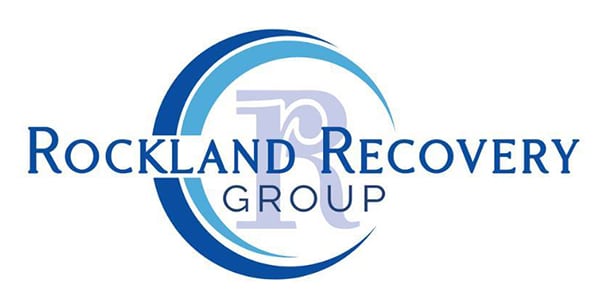Battling addiction and making your way through to the other side of treatment is a significant accomplishment. The mental and physical work of addiction recovery is some of the most challenging you may ever face, and the journey is one that often comes with setbacks. Relapse is common, but you can overcome it. Using effective relapse prevention techniques in addiction recovery is key to long-term freedom from addiction.
Jump to Section
Coping with Triggers in Recovery
The idea that someone can simply quit drugs or alcohol and use sheer willpower to maintain sobriety is a common misconception about addiction. Overcoming addiction is never as easy as being strong enough to say no. Addiction is a complex disease that develops in multiple layers, and overcoming it requires much more than willpower.
When someone enters addiction rehab, they go through the challenging work of detox and repairing their body, but also the difficult stages of understanding their own relationship with drugs or alcohol and how it got out of hand. Trauma, mental health issues, and family dynamics, among other factors, can play a pivotal role.
A major component of addiction recovery involves learning about the “why”, and even when there’s a better understanding of the root causes of addiction, there are still times when the memories, thoughts, and feelings surrounding drug or alcohol use can have a strong pull, leading the individual on a path where relapse can occur.
For the individual, identifying their triggers and learning how to manage them is an essential element of successful addiction recovery. Addiction triggers fall into several categories. These include:
Emotional Triggers
Strong emotions that create intense feelings, whether positive or negative, can trigger the desire to use drugs or alcohol.
Environmental Triggers
These are the physical, external triggers of addiction. Examples include seeing someone you used to use drugs with, being in a bar, or watching a movie where drugs or alcohol are used.
Behavioral Triggers
Disruption in regular routines or developing negative habits can influence a person’s cravings for drugs or alcohol. For example, skipping a support meeting or not prioritizing sleep are behaviors that may trigger relapse.
Psychological Triggers
These triggers are some of the most difficult to manage because they can be so deeply rooted. Negative thought patterns about oneself, feeling guilt, shame, or unworthiness, and feeling overwhelmed are examples of psychological triggers.
Relapse Prevention Strategies
Nobody is immune from the risk of relapse. However, while relapse does happen, you also don’t need to feel powerless over it. Each person has it within themselves to prepare and be proactively aware of how to prevent relapse and manage it if it does happen.
Identify and Avoid Triggers
During addiction treatment, individuals work on identifying their personal triggers. These are different for everyone. What may seem like not such a big deal for one person may be detrimental to someone else’s recovery. Knowing your personal triggers and avoiding them whenever possible is key to relapse prevention in addiction recovery.
What if you encounter a trigger in a situation you can’t control? Do what you can to remove yourself from the trigger. This could mean leaving a social gathering, making an emergency appointment with a therapist to overcome negative thoughts, or asking someone in your support network for help overcoming challenges.
Know the Three Stages of Relapse
The misconception about relapse is that it happens almost instantaneously without much thought. It might seem like this at the moment, but the reality is that relapse happens in a series of stages, with the actual use of drugs or alcohol being the very last stage.
The first two stages of relapse are the emotional stage and the mental stage. Certain feelings and emotions put a person at risk during the emotional stage. This might include isolation, depression, anxiety, or feeling as though they don’t have support.
During the mental stage, thoughts will often turn to using drugs or alcohol. There is often romanticizing of drug use that takes place during this stage, and the individual may miss the people they spent time with or the places they would go when using.
Recognizing these first two stages when they begin to happen is critical in preventing the third stage, which is the physical use of drugs or alcohol.
Address Co-Existing Health Issues
Other mental and physical health issues can influence a person’s addiction recovery. There’s a strong connection between addiction and mental health, with untreated mental health disorders increasing the risk of relapse. Physical health conditions can also play a role. Experiencing pain or being sick can be strong triggers.
During and after addiction treatment, it’s important to make and keep regular appointments to care for your mental and physical health.
Stick To Your Treatment Plan
There comes a point in recovery when confidence increases, and a person may feel that they no longer need the support and structure provided by their treatment plan. This might start with a skipped group meeting or a canceled therapy session. If the individual continues to feel confident, they may move even further away from their treatment plan.
It’s important to remember that your treatment plan was developed between you and your care providers, who have assessed your progress and want the best for you in the long term. Deviating from the treatment plan can take away support and healing that you still need at this point in recovery.
Seek and Maintain a Support Network
The risk of relapse never completely goes away, no matter how successful recovery has been. Having a strong support network in place can provide the lifelong support that someone recovering from addiction needs. A support network can assist in getting help, hold the individual accountable, and offer encouragement in difficult moments.
Overcoming Relapse in Recovery
If relapse happens, it’s important not to let it take away from the progress made over addiction. Relapse is a setback, but it’s not the end. Here are the steps to overcome relapse in recovery and move forward again.
Seek Medical Care If Needed
If your physical or mental health is in any way jeopardized during relapse, medical care needs to be sought immediately. In the case of an emergency, head directly to the nearest hospital. This is also true if you’ve relapsed and feel you’ve lost control over it and might use drugs or alcohol to the point that your life is at risk.
Know That You Haven’t Failed
Relapse isn’t a failure; it doesn’t define you or your future. It’s a setback and will require work to get through, but you’ve done the hard work before and can do it again. Relapse offers the opportunity to learn important lessons about what must be done to prevent it from happening again.
Reach Out for Support and Addiction Treatment
Some individuals make the mistake of thinking since they’ve gone through addiction treatment in the past, that they’re now equipped to manage it on their own after relapse. It’s important to seek support and health from a qualified addiction treatment center that can help you overcome addiction and also teach relapse prevention strategies.
Finding Support for Preventing Relapse in Massachusetts
At Rockland Recovery, we know the road to recovery is filled with both forward and backward steps, and we’re here to help and support you through all of it. Our comprehensive approach to addiction treatment is built on evidence-based care to improve outcomes and lower the risk of relapse. Contact Rockland Recovery today at 888-299-4833.




